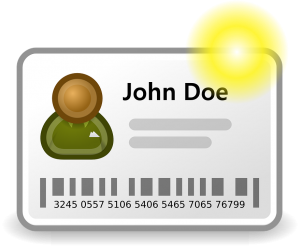Patient Identifiers Accreditation Tips
How many of you comply with approved patient identifiers?

Identification of patients
In a fast-moving General Practice world, how many of you ask and use the 3-point approved patient identifiers in general practice. It is vital for patient safety and confidentiality. According to the RACGP Standards for general practices, “Failure to correctly verify a patient can have serious, potentially life-threatening consequences for the patient.” Thus, the Standards require that practices have a system for patient identification that uses three approved patient identifiers and that this system is used at every patient encounter. For example, within a single appointment, a patient should be asked to verify his or her identity when making the appointment, when presenting for the appointment, and when seeing each clinician.
Approved patient identifiers include
- Name (family and given names together are one identifier)
- Date of birth
- Gender (self-identified)
- Address
- Patient health record number (if such a system exists in your practice)
- Individual Healthcare Identifier (or IHI, issued by the Department of Human Services)
Medicare numbers are not considered approved patient health identifiers, as some patients do not have Medicare cards, some or most don’t bring it with them and family members may share a Medicare number. When asking a patient for identification, the practice team member must ask the patient to state at least three identifiers. It is important that staff do not offer the information and ask the patient to confirm it.
The prevailing issues associated with applying a consistent patient identification process are patient concerns about privacy and patient annoyance at being asked to identify themselves to practice staff with whom they are familiar.
In the first instance, there are recommendations for methods of self-identification that support privacy and confidentiality. The RACGP suggests that the patient produce a form of government-issued, photographic identification (such as a driving license) that confirms at least three of the approved patient identifiers. Some practices have implemented a system where their business card has a patient identification (and emergency contact) section on the back that can be completed by the patient. This has a two-fold benefit, allowing the patient to present the card as a way of confirming his or her identity, as well as carrying the details of both the emergency contact and general practice, which could then be accessible if a health emergency occurs.
The second method has also proved to be useful for patients who are unhappy about being asked to identify themselves at each patient encounter. Another suggestion is to display signage around the practice to explain why you will ask a patient for identifiers. It is common for practices to have patients with similar names, addresses, and/or dates of birth, and mismatching a patient with a health record can have serious consequences. Being confident in explaining the need for correct patient identification can help you successfully engage your patients in the process.
The importance of a robust patient identification process has been highlighted by the Australian Commission on Safety and Quality in Health Care (ACSQHC) in a recent advisory (GP18/04). Accreditation agencies are now required to have processes in place to notify and mitigate significant risks found during accreditation surveys, and staff failing to routinely use a patient identification process is provided as an example of such a risk by the ACSQHC.
How to become compliant?
You know you can reduce this risk if you ask your patients to use Medi2Apps Kiosk. The Kiosk identifies the patient using an approved patient identifier and has audio prompts to patients telling them what to do etc. Once you get 90% of your patients going through the kiosks, it frees up the reception to do other important work, such as patient care, etc. Also, the Kiosk displays the details of patients to update their records like contact details, once they change it Medi2Apps Kiosk’s system update your Practice Management System automatically. Hence, your compliance records to keep the patient records up to date is also handled seamlessly all under one transaction.
Would you like to share your thoughts?
Your email address will not be published. Required fields are marked *